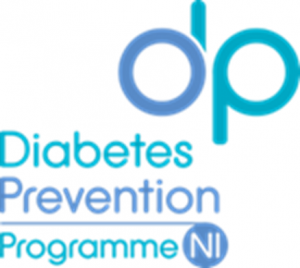

Diabetes Week
Diabetes week will run from 13th – 19th June 2022. Raising diabetes awareness is important as it can educate people about the possible symptoms and ways to reduce their individual risk.
Approximately 100,000 people in Northern Ireland are living with diabetes and this number rises annually by more than 3,000 as a result of our ageing and growing population. In addition, around 12,000 people are also living with undiagnosed type 2 diabetes.
What is diabetes?
Diabetes is a chronic condition that occurs when a person’s blood glucose levels (also known as blood sugar) become too high. This is the result of the body not being able to produce enough insulin or use it effectively to help the glucose from food we eat pass from the bloodstream into the cells in the body to produce energy.
Not being able to produce insulin or use it effectively leads to raised glucose levels in the blood (known as hyperglycaemia). In the long-term, high glucose levels are associated with damage to the body and failure of various organs and tissues.
| Symptoms may include: | High blood glucose also leads to health problems such as: |
| · Frequent urination
· Increased thirst · Increased tiredness · Unexplained weight loss · Genital itching or thrush · Cuts and wounds taking longer to heal · Blurred vision |
· Heart disease
· Stroke · Kidney disease · Eye problems · Dental disease · Nerve damage · Foot problems |
Types of diabetes
The most common types of diabetes are type 1, type 2 and gestational diabetes. However there are many more, the rarer types would include type 3c and Latent Autoimmune diabetes in adults (LADA).
- Type 1 – your body doesn’t produce insulin at all – this happens because your immune system attacks and destroys the cells in your pancreas that make insulin. Type 1 is most commonly diagnosed in children and young adults, however it can appear at any age.
Useful resources:
DAFNE course – five day course provided for people with Type 1 diabetes. The course covers every aspect of diabetes but the main focus is learning how to match insulin doses with carbohydrate intake. If you are interested in the course speak to your Diabetes Team.
- Type 2 – your body doesn’t make enough insulin and this results in the cells in your pancreas becoming overworked. You can develop type 2 at any age, even during childhood. Type 2 is the most common type of diabetes.
Useful resources:
DESMOND – programme designed for ongoing and newly diagnosed individuals with Type 2 diabetes. The programme educates, empowers and provides with resources to help manage diabetes related changes. Click link for video: https://vimeo.com/371617734
- Gestational diabetes – develops in pregnant women. This often goes away after the baby is born, however women who had gestational diabetes have a higher chance of developing type 2 diabetes later in life.
Useful resources:
PRE-PREGNANCY CLINIC – Offers advice for ladies planning a pregnancy. The aim is to reduce risks to both the patient and baby. It is open to ladies with any type of diabetes or those with previous gestational diabetes.
Contact: pre-preg-diabetes@belfasttrust.hscni.net
PAIGE2 TRIAL – randomised control trial recruiting women who have developed Gestational Diabetes Mellitus (GDM). The PAIGE2 programme aims to help postnatal women adopt healthy lifestyle habits to reduce future risks of developing Type 2 Diabetes.
Contact: paige2project@gmail.com
What is Pre-diabetes?
Some people may have a blood sugar level that presents as higher than normal, however not high enough to be classed as type 2 diabetes. This is known as pre-diabetes. Being in this stage means you are at risk of developing type 2 diabetes and need to make some lifestyle changes to prevent from being diagnosed.
Diabetes Prevention Programme
Diabetes Prevention Programme (DPP) supports people with pre-diabetes to reduce the risk of developing type 2 diabetes by encouraging improvements to their lifestyle including diet, activity and weight.
For the last three years there have been 2,247 people referred to the DPP programme within Belfast Trust alone. Currently there are 440 people still waiting to get on the programme – of those 80 are waiting for virtual delivery and 360 for a face to face delivery.
DPP has proven to be very effective, with 63% retention between 2019/2020 and 75% between 2020-2022. Outcomes of the programme also revealed a 77.2% reduction in participants’ blood sugar levels, with 67% returning back to the normal range and no longer pre-diabetic. Participants also view the programme as a positive and enjoyable experience.
This programme is provided by the Health Improvement Team within the trust. For more information please contact: diabetespreventionni@belfasttrust.hscni.net
How can we reduce the risk of Type 2 diabetes?
You can reduce your risk of developing type 2 diabetes by:
- Eating well – maintaining a balanced diet and keeping a food diary
- Moving more – being more physically active and keeping an activity diary
- Getting support to lose weight if you need to
Approximately 3 out of 5 cases of Type 2 diabetes can be prevented or delayed!
Further Information & Support
If you’re looking for information and resources about diabetes please refer to Diabetes UK or Diabetes Educator. Also, don’t forget to check out the B Well website for some useful resources. The B Active and Eat Well sections include links to sources of support related to diabetes such as being physically active, eating a balanced diet and helping with weight loss.
For more information on the resources and programmes offered by the Health Improvement Team please visit our page here.


